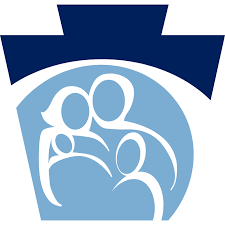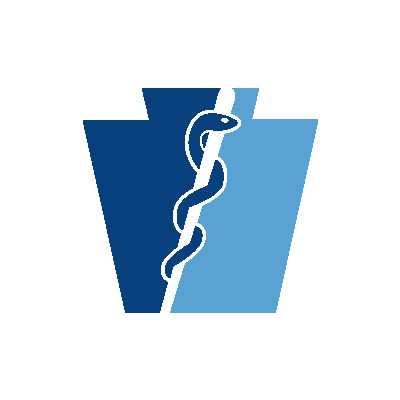Harrisburg, PA – The Wolf Administration today released data on the number of COVID-19 cases and deaths at long-term care facilities in Pennsylvania.
“Long-term care facility residents are among the most vulnerable Pennsylvanians, and we want their families to have the latest information on what is going on in the facilities in which their loved ones reside,” Dr. Levine said. “COVID-19 is a particularly challenging situation for these settings as they care for residents with serious medical conditions. We will continue to work to ensure the safety and wellbeing of residents through education, resources and testing.”
The data provides the number of cases, number of employee cases and number of deaths that have occurred at each facility. For facilities with less than five in any of these data points, the information is redacted.
“Our long-term care facilities are an integral part of Pennsylvania’s health care system. People providing care in long-term care facilities must endure these challenges of this difficult time while maintaining continuity and services for people under their care,” said Department of Human Services Secretary Teresa Miller. “We are committed to continuing networks of support for these facilities so we can navigate and overcome this challenge together.”
The Wolf Administration has taken a three-pillar approach to protecting the vulnerable residents living in nursing homes and other long-term living settings:
- Ensuring resident safety through testing, education and resources;
- Preventing and mitigating outbreaks; and
- Working in partnership with state agencies, local health departments and long-term care facility operators.
Testing is an essential component to making sure vulnerable residents in these long-term care facilities are safe. Through the state’s testing strategy, we are working to ensure that testing is accessible for all Pennsylvanians with COVID-19 symptoms, available through increased efforts to build supply and capacity, and adaptable based on the ever changing landscape of the virus and data available.
Guidance released last week to hospitals and skilled nursing homes require a resident who is being discharged from a hospital to a nursing home, personal care home, or assisted living facility be tested for COVID-19, if they were not hospitalized due to the virus. This will provide valuable information to the long-term care facility on any needs to cohort the patient, monitor their condition and take necessary precautions to prevent the spread of the virus, if applicable.
In addition, a Health Alert was previously issued to provide direction to all skilled nursing facilities on a universal testing strategy, outlining when testing should be used, and what steps to take after a positive test result. Test results can be used to cohort those exposed, determine the burden of COVID-19 across units or facilities to allocate resources, identify health care workers who are infected, and address those who are no longer ill.
The department is committed to testing all patients and staff in Pennsylvania’s long-term care facilities. A pilot study of two facilities is currently underway to test all residents and staff at the facility. The information from these tests will be used for cohorting. The department, working with commercial laboratories, has been coordinating with facilities that are implementing universal testing. We are receiving test swabs from the federal government to ensure our facilities have an adequate supply. In addition, the Pennsylvania National Guard is mobilizing to provide a mobile testing option for facilities that may not be able to test on their own.
Education to facilities has been provided through bulletin boards, nursing home associations, and our normal channels of communication such as Health Alert Network messages. That education has included guidance for clinicians at long-term care facilities on the cohorting of residents with COVID-19 in dedicated units within nursing homes, effective transmission prevention strategy, universal screening and masking of all healthcare workers, and how to provide access to the state’s Long-Term Care Ombudsman.
One of the most needed resources during COVID-19 has been personal protective equipment (PPE). The state has delivered more than 1,700 shipments of PPE to nursing homes, personal care homes and other long-term care facilities, both as routine deliveries and also to meet critical needs. The department has held webinars and classes on PPE for long-term care employees and leadership on how to use it effectively and has trained and fit-tested more than 150 individuals.
The department, along with additional state agencies, has provided these facilities with the resources and expertise to provide consultation in order to prevent or control existing outbreaks. Resources and expertise include:
- Staff from the quality assurance team, who conduct onsite visits to facilities and investigate complaints and concerns related to the safety of residents;
- The healthcare acquired infection (HAI) team has provided direct consultation with facilities experiencing outbreaks. To date, this team has worked with more than 250 facilities across the state;
- Create rapid response strike teams using the state’s staffing contract with nurses to staff the facilities in need;
- ECRI, the infection control contractor working with the state, has provided additional technical assistance and support to 100 facilities;
- The Patient Safety Authority, an independent state agency, has used their knowledge to assist 90 facilities as well;
- The state’s healthcare coalitions, which exist in each region of the state, and regional coalition emergency managers, have worked to directly assess facilities and deliver PPE;
- Medical reserve corps and the Department of Human Services have also provided virtual mental health services to facilities; and
- CDC teams are providing on-site assistance for long-term care facilities using their infection prevention and control expertise.
When necessary, the department aids in coordinating staffing of facilities with immediate needs. The Eastern State Medical Assistance Team and the Pennsylvania National Guard have both been deployed to support 13 facilities with immediate staffing needs, preventing these facilities from being evacuated.
Individuals with complaints about a nursing home can file that complaint with the department in several ways. Complaints can be made anonymously by calling 1-800-254-5164, filling out the online complaint form, emailing c-ncomplai@pa.gov or sending the complaint in the mail to the department.
The Wolf Administration stresses the role Pennsylvanians play in helping to reduce the spread of COVID-19:
- Wash your hands with soap and water for at least 20 seconds or use hand sanitizer if soap and water are not available.
- Cover any coughs or sneezes with your elbow, not your hands.
- Clean surfaces frequently.
- Stay home to avoid spreading COVID-19, especially if you are unwell.
- If you must go out for a life-sustaining reason, please wear a mask.
Updated Coronavirus Links: Press Releases, State Lab Photos, Graphics
- Daily COVID-19 Report
- Press releases regarding coronavirus
- Latest information on the coronavirus
- Photos of the state’s lab in Exton (for download and use)
- Coronavirus and preparedness graphics (located at the bottom of the page)
- Community preparedness and procedures materials
- Map with the number of COVID-19 cases
All Pennsylvania residents are encouraged to sign up for AlertPA, a text notification system for health, weather, and other important alerts like COVID-19 updates from commonwealth agencies. Residents can sign up online at www.ready.pa.gov/BeInformed/Signup-For-Alerts.




